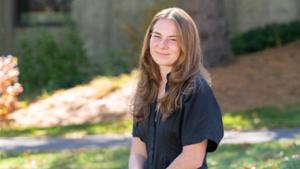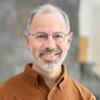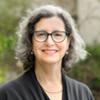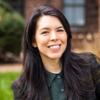
Literature and Creative Writing
The goal of the Literature and Creative Writing Department is to help students develop a sophisticated understanding of the role literature plays in the human experience through refining their skills as interpreters of literary texts and as writers, either of literary analysis or of their own creative works.
About the Majors
At Hamilton, students may choose to major in literature or creative writing. In either case, their professors will encourage them to explore literature across centuries, nations, and languages. Consulting with advisors, literature majors develop an individualized, and potentially interdisciplinary, course of study. Creative writing majors take courses that balance literary study with poetry and prose workshops. In both majors, the curriculum emphasizes small classes, the exchange and testing of ideas, and the development of superior reading and writing skills.
Literature Students Will Learn to:
- Write clear and well supported arguments about literary and/or other cultural texts
- Demonstrate knowledge of diverse literary traditions across historical periods, geographic regions, and/or social contexts
- Analyze literary works compellingly in contexts informed by literary criticism and/or broader regions, and/or social contexts
Creative Writing Students Will Learn to:
- Write with an awareness of the literary traditions within which they are working
- Write with attentiveness to form and genre
- Write a sustained creative project that demonstrates originality and attention to language
A Sampling of Courses

American Ghosts
Why do we tell ghost stories, and what role do ghosts play in American history and literature? This course will explore the ghost narrative in short fiction, novels and film. We will examine what ghosts express in U.S. literature and culture, how they unearth our understanding of American history, and how ghost stories intersect with gender, race, sexuality and class. We will read works by Shirley Jackson, Toni Morrison, Carmen Maria Machado, Viet Thanh Nguyen, Jesmyn Ward and Louise Erdrich, among others. Students will engage in close reading and textual analysis and will write four full-length essays.
Explore these select courses:
Always a necessity and sometimes a luxury, food connects all people to the planet and to one another. This course will explore how authors and filmmakers use food and cooking in their works as a means of exposing complex social relationships, histories, and identities. The list of authors we may read includes Laura Esquivel, Aimee Bender, Isak Dinesen, Franz Kafka, MFK Fisher, Ruth Reichl, and many poets. We will also look at films such as Big Night; Eat, Drink, Man, Woman; and Ratatouille.
Debates about the value of literature have long been tied to questions about its use. Literature has been praised—and condemned—as a source of pleasure, a medium for the transmission of knowledge, and a vehicle of personal expression. In order to determine why fiction matters, we will examine works that explore the power of literature to shape moral, social, and political realities, including philosophical manifestos, anti-slavery treatises, self-help manuals, and experimental novels. Works by Rousseau, Cugoano, Wollstonecraft, and George Eliot, as well as the film The Servant (1963).
Meet Our Faculty
20th-century and contemporary American literature, literary theory, autobiography, film
Creative writing, Asian American literature and media, Filipino American literature, the Gothic, pop culture
Naomi Guttman
Jane Watson Irwin Professor and Associate Chair of Literature and Creative Writing
Poetry and poetics; food writing; contemplative pedagogy; environmental and feminist literary study
Tina May Hall
Associate Dean of Faculty, the Edward North Chair of Greek and Greek Literature, and Professor of Literature and Creative Writing
creative writing, 20th-century literature, experimental women's writing, and postmodern gothic
Poetry and poetics, women’s and gender studies, Black feminisms and WOC feminisms, visual culture studies, Black performance theory and queer performance studies, race and aesthetics
Fiction, nonfiction, speculative nonfiction/memoir, Pacific studies, Indigenous and Pasifika literatures, Asian American literatures, food writing, publishing
Romantic period literature; animals in literature; animal rights; nature writing – literature and environmentalism; cultural and political history of the Adirondack Park
Steve Schillinger
Visiting Assistant Professor of Literature and Creative Writing
Renaissance, drama, book history and history of early print and rhetoric
Poems, poetics, nonfiction and Southern literature
Pavitra Sundar
Associate Professor of Literature, Director of Cinema and Media Studies
Cultural politics of voice; postcolonial studies; sound studies; South Asian film and media studies; feminist theory, especially women-of-color and transnational feminisms
Old English, Middle English, and Middle Scots language and literature
Margaret Thickstun
Jane D. and Ellis E. Bradford ’45 Distinguished Writing Chair
Literature in 17th-century England and Colonial America, particularly by women and by people writing on religious subjects
Anne Valente
Associate Professor of Literature and Creative Writing, Director of Creative Writing
Creative writing, novels and short stories, creative non-fiction, and 20th century American literature
20th-century American and British literature; literary translation; Ezra Pound; comparative literature; Asian American literature, especially poetry; global literary modernisms; Asian diasoporas; transpacific literature
Christian Goodwillie
Lecturer in History, Lecturer in Literature and Creative Writing
Poetry, creative writing, literary publishing, nonprofit management
Technology Enhanced Learning & Educational Innovation, Digital Humanities, History of Book History/Print Culture, Visual Studies (Graphic Narratives and Editorial Cartoons & Comics), Latin America/Latinx, and Medieval And Renaissance Studies
Faces & Spaces
List Hall houses the offices for faculty members in literature and creative writing. The recently renovated space has 16 faculty offices, eight classrooms, several collaborative spaces for students, and a new landscaped entrance.








Careers After Hamilton
Hamilton graduates who concentrated in literature and creative writing are pursuing careers in a variety of fields, including:
- Director, Electronic Publishing, Scientific American
- Executive Editor, Whole Living magazine
- Chief Development Officer, Norman Rockwell Museum
- President, Scholastic Media
- Magistrate, Connecticut State Superior Court
- Composer/Music Publisher, Ceili Rain
- Financial Advisor, Ameriprise Financial Services
- Physician, Senior Deputy Editor, Annals of Internal Medicine
- Communications Manager, IBM
Explore Hamilton Stories

A Writer's Paradise in Chautauqua
The Chautauqua Institute emphasizes holistic lifelong learning in all disciplines, from politics and history to art and spirituality. This summer, Susie Anderson ’27 became part of that history as a staff writer for The Chautauquan Daily, shining a light on the happenings of its 2025 season.

Sundar Named Again in Annual Poll of Best Video Essays
Pavitra Sundar, associate professor of literature and creative writing, was named in the British Film Institute’s Sight and Sound Poll for the Best Video Essays of 2025.
Contact
Department Name
Literature and Creative Writing Department
Contact Name
Benj Widiss, Chair
Clinton, NY 13323


















